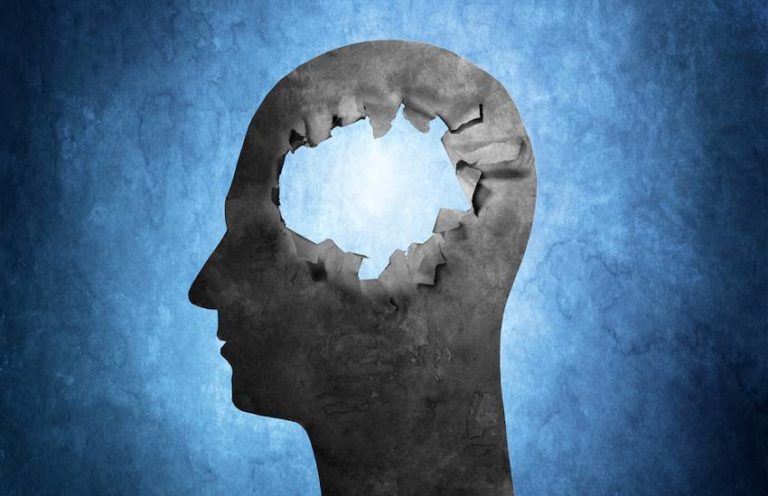There are many things that cause depression. Believe it or not, mineral and vitamin deficiencies are one of those factors!
If you suffer from depression, most likely you’ve already been properly diagnosed and matched with a regimen of antidepressants. This is the common case when it comes to most people who suffer from mental disorders of various kinds.
Counseling is also common, followed by group therapy. What is not common, however, is taking a look at how vitamin deficiencies play a role in your diagnosis.
Vitamin deficiencies that cause depression
Yes, vitamin deficiencies can cause depression, and then it can also worsen these symptoms over time as well. By speaking openly with your doctor about these concerns, you can test for various vitamin deficiencies and get to the root of your depression.
Here are a few prime examples:
1. Vitamin D
I’m going to start with an easy one. Many people already understand the link between depression and vitamin D. While the sun is our richest source of this vitamin, supplements work to fill our vitamin deficiencies as well.
Unfortunately, many of us never get tested for this lack of vitamin while more and more of us are suffering from depression. It’s estimated that we need between 600 and 1,000 IU of vitamin D, AT LEAST! However, it is recommended that we get more than that if possible.
2. Vitamin B
Both vitamin B-6 and B-12 have been shown to elevate the mood. They can also reduce the risk of stroke and help you retain healthy skin and nails.
You can find B-6 in foods such as leafy greens, seafood, poultry, and bananas. Suggested intake, according to the National Institute of Health is 1.7 mg.
As for B-12, you can find this natural vitamin in foods such as meats, eggs, milk, and seafood. Recommended intake for adults is 2.4 mcg.
3. Iron
About 20% of women and 50% of pregnant women suffer from iron deficiency. Only 3% of men, on the other hand, suffer. Individuals need between 8 and 18 mg of iron per day, in which we can find in meats and other proteins.
Depression and fatigue are caused sometimes by low levels of iron which actually cause a low count of red blood cells.
4. Omega-3 fats
The brain needs Omega-3 fats to function normally. When there is a lack of this nutrient, the brain will use unhealthy fats instead. When this happens, you can experience depression as well as inflammation. Does this sound familiar?
Fish (tuna, salmon, and halibut) and eggs, plus supplements provide plenty of Omega-3 fats. If you think you’re getting enough, you’re probably not.
5. Magnesium
This vitamin is more important than you think and can greatly contribute to mental health problems. More than half of all people have a slight to severe magnesium vitamin deficiency. This is because of the overall large intake of alcohol, salt, sugar, and coffee indulgences. Not to mention, we also take many antibiotics and suffer stress on a regular basis.
Both these things contribute to a decrease in magnesium levels as well. To increase your magnesium intake, you can enjoy nuts, leafy green vegetables, and beans. You can also supplement this with at least 400 mg for men and 300 mg per day for women.
6. Vitamin C
Surprisingly, a lack of vitamin C also contributes to depression. In fact, depression is the first indication of a vitamin C deficiency, followed by bleeding and sore gums.
Some people cannot even properly absorb this vitamin and should be tested before trying to improve intake. Otherwise, make sure you enjoy plenty of fresh fruits, especially citrus, to ensure you have ample amounts of this vitamin.
7. Amino Acids
This nutrient is found in fish, meat, seafood, and nuts. It is an important source of protein, that when deficient can cause symptoms such as depression, brain fog, and fatigue. Basically, amino acids are important for overall brain function.
8. Zinc
You may not have realized it, but this mineral plays a huge role in our digestive system. It regulates digestion while controlling food allergies. Many times these allergies, in turn, can contribute to depression.
In this case, depression can be linked to inflammation and immune system problems, all due to a zinc deficiency. Men should have 11 mg of this mineral, while women require only 8 mg. Food sources include oysters, crab, lamb, pork, poultry, cashews, and beef.
9. Iodine and selenium
I paired these two together because they both play a role in the thyroid system. First off, we all need salt, of some form, in our diets in order to have a healthy thyroid.
You can ingest enough salt by lightly seasoning your food or by munching on seaweed snacks. Most adults need 150 Mcg of Iodine per day in order to retain optimal thyroid functioning.
Selenium can be found in meats such as poultry, pork, shrimp, and liver. It can also be consumed when enjoying brazil nuts!
Since the thyroid controls the immune system, body temperature, metabolism, energy, and brain performance, I would say it’s pretty darn important. With selenium, the thyroids ability to control inflammation can also be thwarted.
10. Folate
Sometimes, in order to reap the full benefits of antidepressants, a medication high in Folate will be given secondary to your regular medications.
This medication is referred to as Deplin. If you prefer to take folate supplements instead, then 400 mcg is good enough for an adult dosage. You can also find natural folate in leafy green vegetables, citrus juices, and fruits and also in beans.
A different perspective on the causes of depression and a few more ways to fight it!
Now, with this arsenal of weapons, maybe we can make progress in the battle against mental illnesses such as depression. You have a bit more information at your fingertips and no longer have to rely only on doctor’s medications.
To be honest, anatural approach to treating depression is much more beneficial and may prove to be the missing part of our quest to heal. Could these mineral and vitamin deficiencies be the true reason for our darkness?
Let’s try to fulfill our requirements and see what wondrous changes happen to our bodies and our minds. It can never hurt!





Hi!
Do you have any sources about Vic C’s link to curing depression?
In my personal database I could only find this:
“However, studies on the role of Vit C in the course of Nutrients 2017, 9, 659 18 of 29 neurological disorders in human are limited and the existing ones have aimed mostly at evaluating the effect of Vit C supplementation (often co-supplementation with other agents).
Recently, a tendency toward using administration of large doses of Vit C as an adjuvant in the curing of many diseases was observed. Unfortunately, in the available literature, there is a lack of studies considering this issue in the context of neurological disorders.”
Thank you!